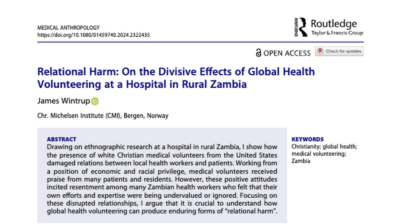Corruption, grabbing and development: Real world challenges
All societies develop their own norms about what is fair behaviour and what is not. Violations of these norms, including acts of corruption, can collectively be described as forms of ‘grabbing’. This unique volume addresses how grabbing hinders development at the sector level and in state administration. The contributors – researchers and practitioners who work on the ground in developing countries – present empirical data on the mechanisms at play and describe different types of unethical practices.
The book's sixteen case studies explore why certain practices constitute forms of grabbing, what implications they have for the achievement of development goals, and how policy options should take the characteristics of grabbing into account. A broad range of sectors are covered, including extractive industries, construction, ports, utilities, finance, health, pharmaceuticals and education. The authors discuss checks and balances in politics, democratic elections, the law enforcement system, government's role in the allocation of land as well as its role as a development partner in other countries.
The volume’s original approach makes it a valuable resource for researchers and students interested in development, economics, governance and corruption. Development aid practitioners, as well as politicians and public officials in developing countries, will find it a useful aid in their work.
Contents:
Introduction
Tina Søreide and Aled Williams
PART I: GRABBING EXPLAINED BY CHARACTERISTICS OF A SECTOR OR STATE FUNCTION
1. Corruption and Collusion in Construction: A View from the Industry
Jill Wells
2. Rents Extraction in the Sub-Saharan Africa Port Sector
Gaël Raballand and Jean Francois Marteau
3. Resource Grabs
Philippe Le Billon
4. Grabbing in the Education Sector
Muriel Poisson
5. Courts, Corruption and Judicial Independence
Siri Gloppen
PART II: GRABBING AT THE LEVEL OF SECTOR AND STATE FUNCTIONS IN A COUNTRY CONTEXT
6. Grabbing by Strangers: Crime and Policing in Kenya
Jens Andvig and Tiberius Barasa
7. Grabbing Land in Malawi
Blessings Chinsinga and Liam Wren-Lewis
8. Using Salaries as a Deterrent to Informal Payments in the Health Sector
Ida Lindkvist
9. Financial Blood-letting in the Colombian Health System: Analysis of the Systemic Rent-seeking in the Use of a Health Insurance Fund
Karen Hussman and Juan Carlos Rivillas
PART III: WHEN POLITICAL GRABBING PREVENTS THE PERFORMANCE OF A SECTOR OR STATE FUNCTION
10. Transport Infrastructure Failures in Spain: Mismanagement and Incompetence, or Political Capture?
Germà Bel, Antonio Estache and Renaud Foucart
11. ‘Pay Up and Off You Go!’ Buying Political Positions in Bangladesh
Inge Amundsen
12. Monopolizing Reconstruction: Angolan Elites and Chinese Credit Lines
Lucy Corkin
13. ‘Grabbing’ an Election: Abuse of State Resources in the 2011 Elections in Uganda
Svein-Erik Helle and Lise Rakner
PART IV: RISK OF GRABBING DUE TO INTERACTION WITH INTERNATIONAL PLAYERS
14. Elite Capture of Kabul Bank
Arne Strand
15. Don’t Rock the Boat: Why it is Difficult for Norway to Deal with Corruption in Development Aid Programmes
Eirik Gjøstein Jansen
16. When Per Diems Take Over: Training and Travel as Extra Pay
Ingvild Aagedal Skage, Tina Søreide and Arne Tostensen
David Aled Williams
- Corruption
- Global Health
- Democracy and Governance
- Grabbing
- Corruption
- Development Aid
- Accountability
- Utilities
- Construction
- Ports
- Extractive Industries
- Finance
- Health
- Pharmaceuticals
- Education
- Law Enforcement
- Land
- Elections.
In this volume:
- Grabbing an Election: Abuse of State Resources in the 2011 Elections in Uganda
Helle, Svein-Erik, Lise Rakner - Introduction
Søreide, Tina, David Aled Williams - Courts, Corruption and Judicial Independence
Gloppen, Siri - 'Pay Up and Off You Go!' Buying Political Positions in Bangladesh
Amundsen, Inge - Elite Capture of Kabul Bank
Strand, Arne - When Per Diems Take Over: Training and Travel as Extra Pay
Skage, Ingvild Aagedal, Tina Søreide, Arne Tostensen




